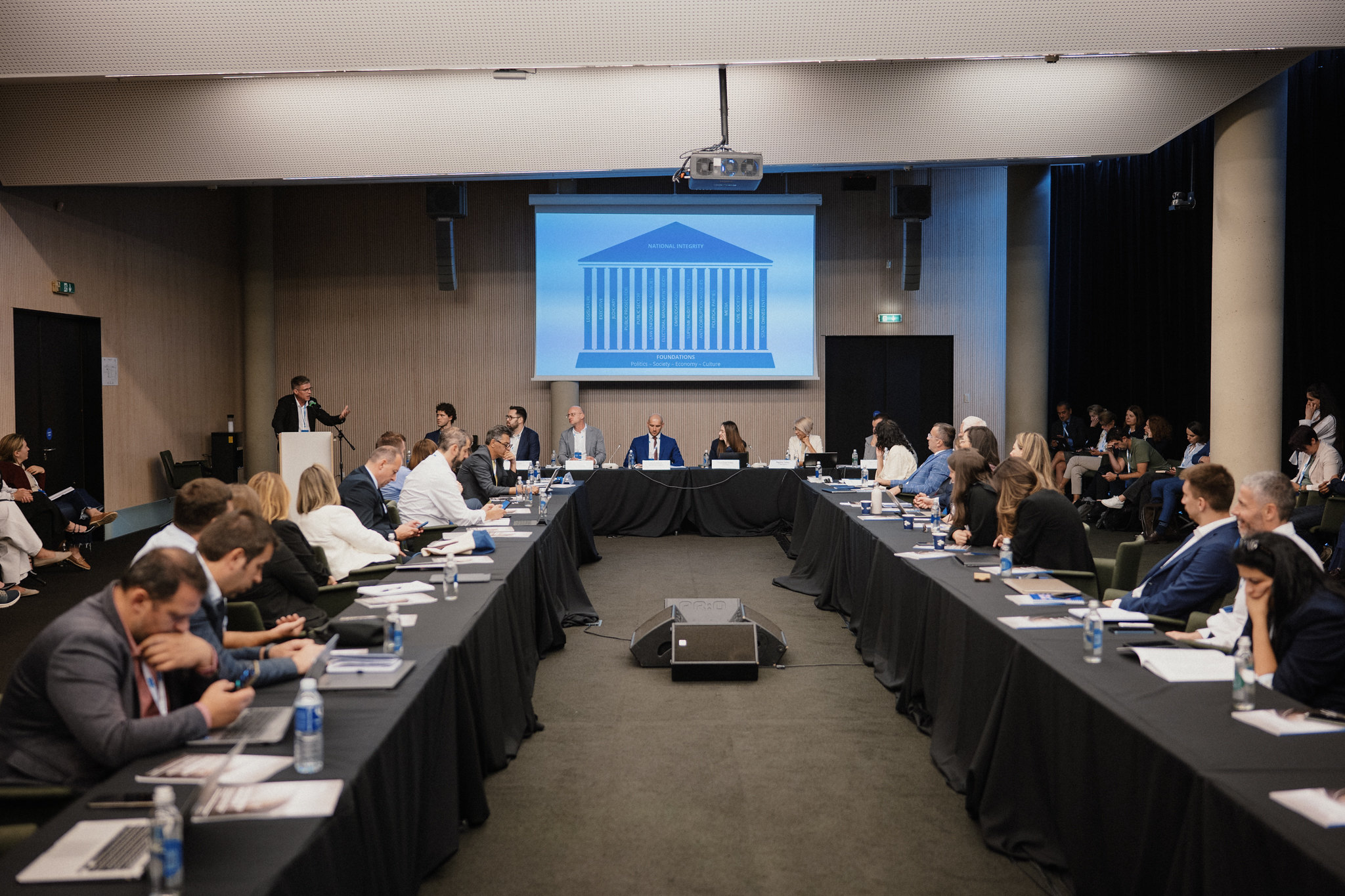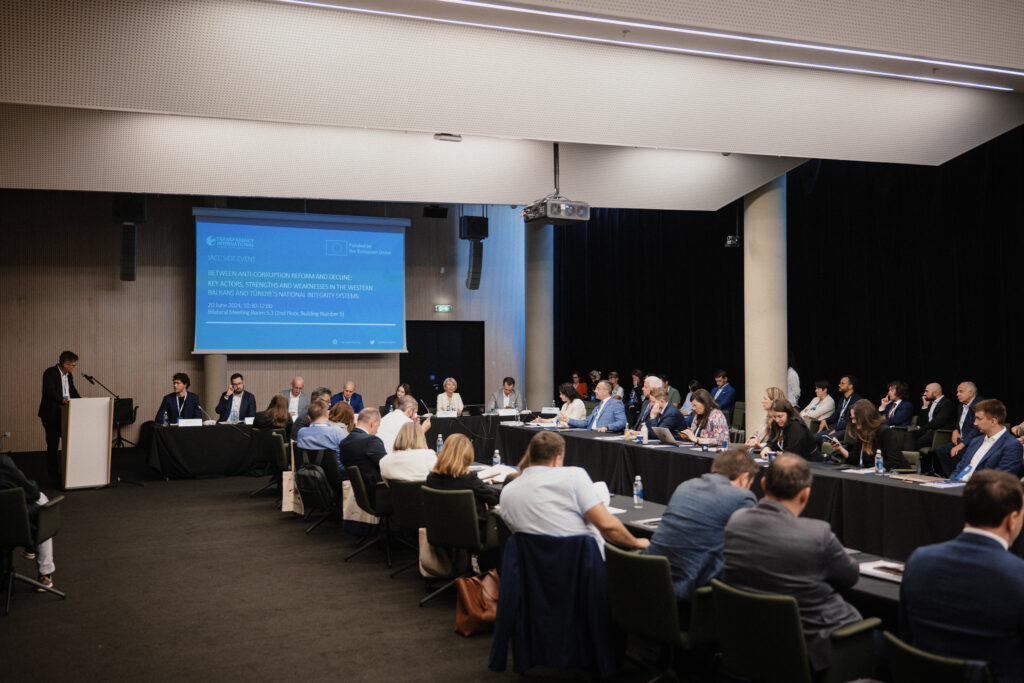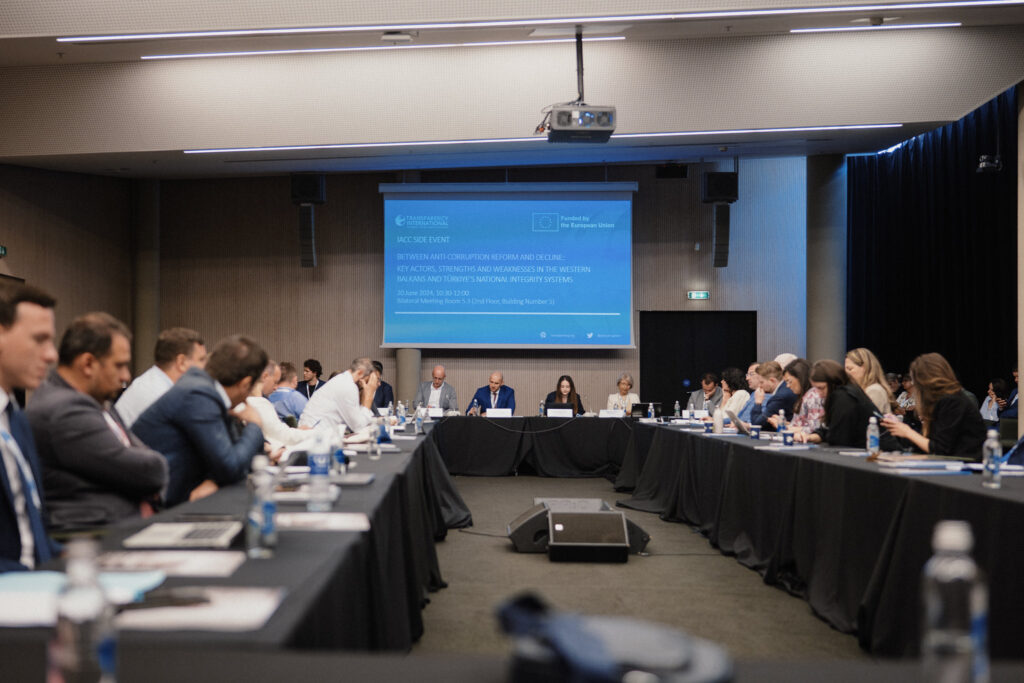Within the framework of the 21st International Anti-Corruption Conference held in Vilnius, Lithuania, the regional National Integrity System: Between Anti-corruption Reform and Decline: Examining Key Actors, Strengths and Weaknesses in the Western Balkans and Türkiye’s National Integrity Systems. This publication was prepared within the framework of the project: „EU4 Rule of Law: Citizen Engagement for Public Integrity (CEPI) in the Western Balkans and Turkey“, funded by the European Union and the Government of Switzerland.
The National Integrity System (NIS) comprises the principal governance institutions in a country responsible for the fight against corruption. When these governance institutions function correctly, they constitute a healthy and robust national integrity system, effective in combating corruption as part of the larger struggle against the abuse of power, misconduct and misappropriation in all its forms.
Despite a variety of political and public sector integrity reforms, partly intended to make progress towards EU integration, people still see corruption as one of the biggest problems in the Western Balkans and Türkiye. Corruption harms the region in various ways, such as distorting policymaking and accountability mechanisms, undermining democratic institutions, and decreasing public trust in government across the region.
The National Integrity System (NIS) assessments carried out between September 2022 and December 2023 by Transparency International chapters and partners in the Western Balkans and Türkiye confirms the public’s concerns. The assessments reveal a complex mixture of slow and limited progress in strengthening integrity systems, along with democratic backsliding that strongly augments corruption levels. The findings presented in this report stem from a comprehensive analysis of the resources, independence, transparency, accountability and integrity of institutions and non-state actors that play key roles in the fight against corruption. The report identifies six critical areas warranting further anti-corruption efforts: separation of powers between the executive and legislative, the justice sector, political integrity, public sector integrity, oversight institutions, and civil society and the media, in their role as anti-corruption watchdogs.
Presentation of the regional National Integrity System: Between Anti-corruption Reform and Decline
* Project: “EU4 Rule of Law: Citizen Engagement for Public Integrity (CEPI) in the Western Balkans and Turkey” implemented by Transparency International – Macedonia and financed by the European Union and the Government of Switzerland







